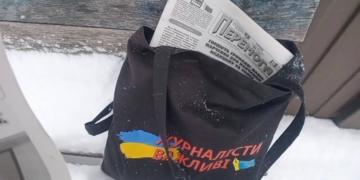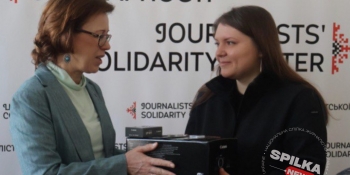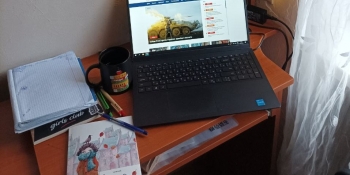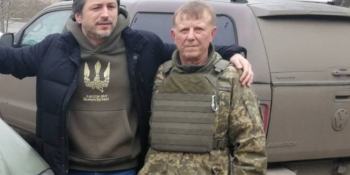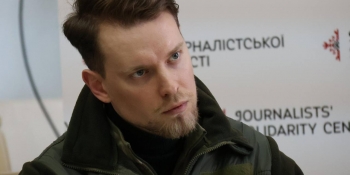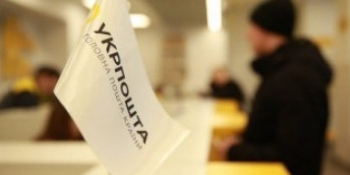In the urban-type village of Oktiabrske in the Chervonohvardiiske District of Crimea, Russian security forces massively handed out “warnings” to the Crimean Tatars, the Crimean Solidarity non-governmental organization reports. This is a preventive ban on participation in “mass unauthorized events”. And for civil journalists, in addition, this is also a ban on freedom of speech, as it is a ban on being at the scene of the event, and therefore a ban on reporting information about it.
Such “warnings” are a violation of the law, as the ban on participation in events is issued in advance, without taking into account the specifics and meaning, and content of the event, as well as restricting the freedom of peaceful assembly.
The elderly parents of political prisoner Rustem Emiruseyinov; Arsen Abkhayirov, who is a civil journalist of the Crimean Solidarity; Kulamet Ibrayimov; 64-year-old Shadiya Katyk; 61-year-old Zera Sativaldiyeva and Yunus Veliyev were put on the list of those visited by Russian security forces. A few days earlier, all of them participated in a collective dua (prayer) dedicated to the anniversary of the detention of three Crimean Tatars in the case of Crimean Muslims.
The security forces failed to avoid miscalculations. On the same day, the “warnings” were also brought to political prisoner Emil Ziyadinov, in particular, to his family’s place of residence, while the Crimean Tatar himself was sentenced to 17 years in prison and has been in prison for several years. The wife of the political prisoner, Elvie Ziyadinova says: “The police officer said he wanted to talk to Emil Ziyadinov. The mother replied that they could not talk to him. He asked about the reason. She said he was in custody and then he [the officer] turned around and left.”
The “warnings” were also brought to the parents of political prisoner Rustem Emiruseyinov, Reshat, and Zure Emiruseyinovs. The woman could not go to the police for health reasons. Reshat recounted his conversation with the security agents: “Did you see the planes and drones flying, he says. Well, planes fly, I say, and as for the rest, I don’t know what flies. Then they asked if they were coming to us to campaign against the special operation (this is what the Russian authorities call the war against Ukraine – Ed.).”
Police officers insisted that the elderly Zure Emiruseyinova come to them. “They demanded that the wife leave, but she is very sick, she cannot walk now. They wanted to go into the yard so that she would come to the window. But I didn’t let them into the yard, because she doesn’t feel well and she can’t be nervous,” Reshat Emiruseyinov added.
Civil journalist and correspondent of Crimean Solidarity Kulamet Ibrayimov was handed a “warning” by Russian law enforcement officers at his place of residence, even though the journalist lives at a different address. His brother went to the police officers and read it. The document warned against participation in any “mass unauthorized events”. Employees also asked questions about whether any unmanned aerial vehicles had flown over Oktiabrske.
“I consider this “warning” to be another attempt to put pressure on independent journalistic activity in Crimea since we have been covering the events happening here since 2014. In addition to me, they reached six more families. This in no way stops me, it will not affect my journalistic activity,” commented Kulamet Ibrayimov.
Similar “warnings” have already been handed to many Crimean Tatars, including activists, members of the Mejlis of the Crimean Tatar people recognized in Russia as an extremist organization, human rights defenders and civil journalists, and correspondents of Crimean Solidarity. Human rights activists consider this a method of psychological pressure, and the Russian police call it a “preventive measure” of a non-procedural nature.
It is also clear why law enforcement officers were interested in what people were saying about drones. After all, starting from August 2022, the sounds of explosions can be heard almost every day in Crimea and Sevastopol. Russian authorities explain this as shooting at “Ukrainian drones” and “air defense work”. Russian-appointed head of Crimea, Sergey Aksyonov, called drones the “main threat” to Crimea.
NUJU information service





